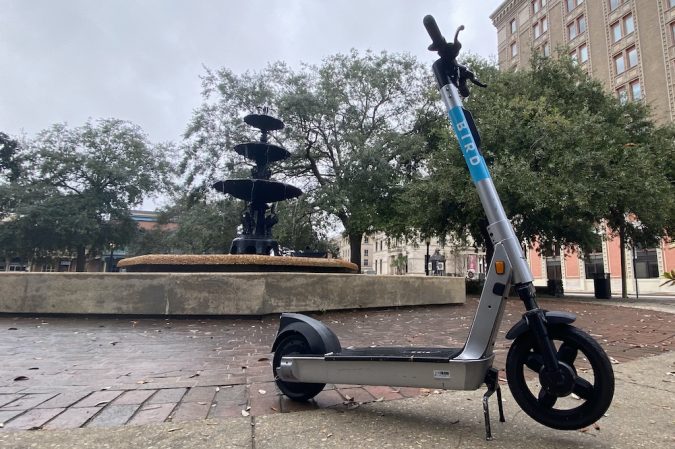
The Downtown Improvement Board has asked the Pensacola City Council to impose tighter restrictions on electric scooters when the council meets to discuss the matter this month.
In a letter sent to councilmembers Thursday, the DIB requested that council limit the number of scooters allowed in the city to 200, ban them from sidewalks and parking garages, disallow unlicensed drivers from operating the vehicles, create designated pickup and drop-off areas and limit their hours of operation from 5 a.m. to 10 p.m.
The DIB also requested that the city charge an annual fee on each scooter, which would be used to support safety and infrastructure upgrades to the scooter program.
“We appreciate and embrace the City’s efforts to make Pensacola a multi-modal city,†the letter reads, “and we understand the need to create diverse public transportation options. However, we are also aligned in our belief that the scooter pilot program is threatening the safety and well-being of downtown Pensacola residents, workers, and visitors.â€
The DIB’s recommendations follow mounting scrutiny of Bird Scooters, the company that began operating an e-scooter pilot program in downtown Pensacola last July. Mayor Grover Robinson expressed concern about the program in December — after a flurry of citizen complaints and at least two serious injuries tied to the scooters.
In October, a local man racked up $60,000 in medical bills after wrecking one of the scooters. The following month, another rider was hospitalized with severe injuries after running a stop sign and colliding with a car.
Pensacola isn’t the only city looking to tighten regulations around this new mode of transportation. Municipalities across the country — and around the world — are reevaluating their approach to e-scooters as the associated risks become clear.
According to the Consumer Product Safety Commission, e-scooters resulted in an estimated 50,000 emergency department visits and at least 27 fatalities between 2017 and 2019, with injuries and deaths on the rise year over year.
DIB executive director Walker Wilson says that City staff have been open to feedback. “After speaking with City staff to address concerns from downtown businesses and property owners, they confirmed that some of the recommendations were going to be passed along in their report to City Council,†he said.
Though the scooter pilot program is still in progress, the DIB hopes it will proceed with caution. “Being thoughtful about how we use our downtown sidewalks and roadways, we can ensure the district continues to be safe and accessible for all of us,†the DIB wrote in their letter.



